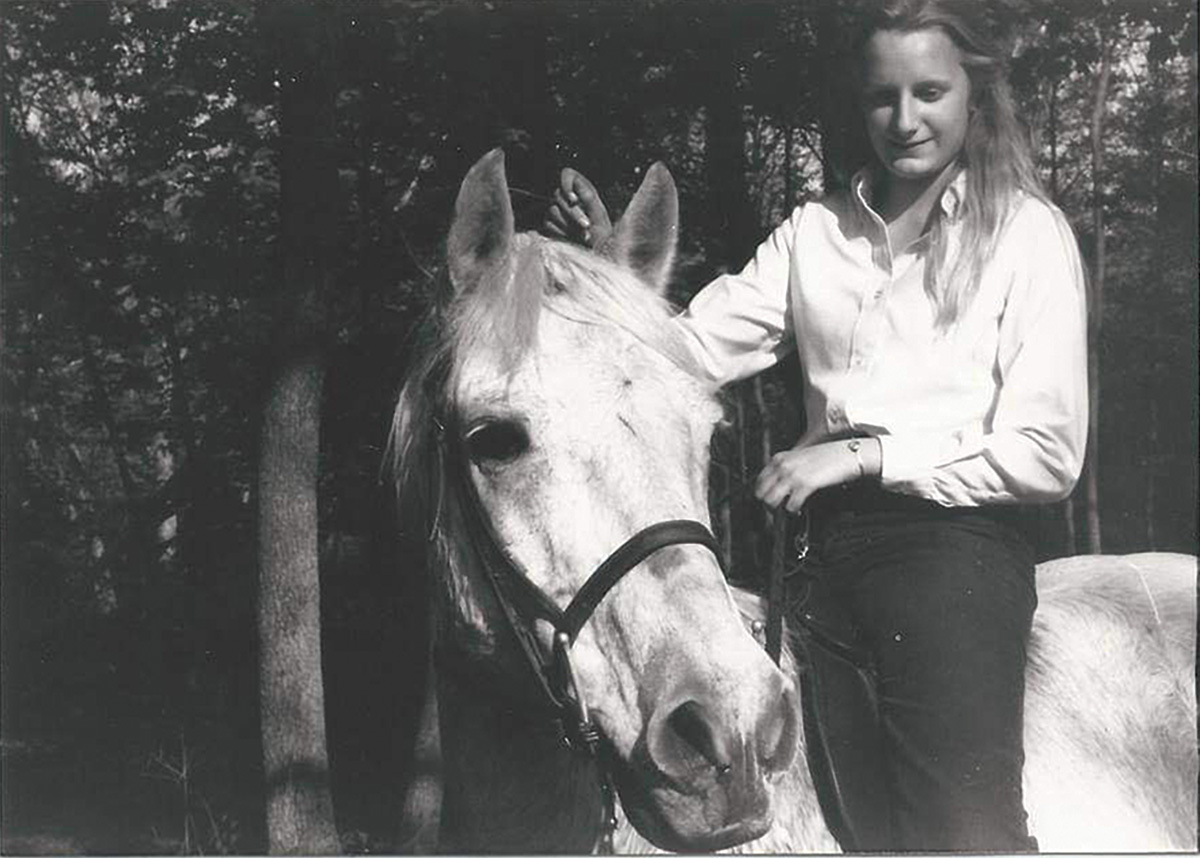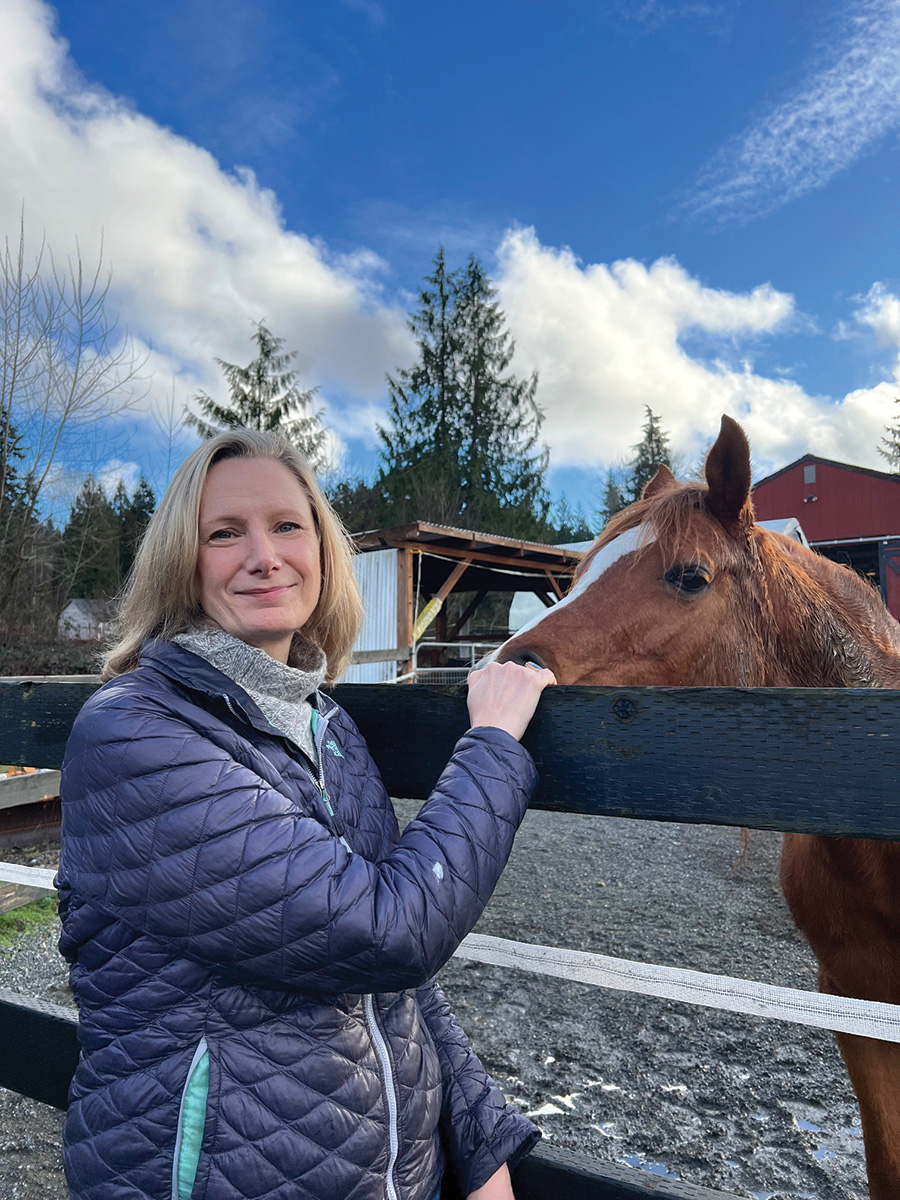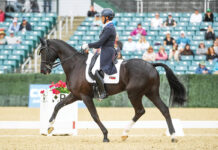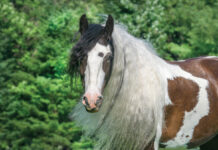After growing up horsey, Nancy still held on to her identity as a “horse girl” even when she hadn’t ridden in years.
I could feel her staring at my boots, caked with mud from some last-minute yardwork before my flight. Now at the airport gate, I looked up and caught her eye. She was well-dressed, probably in her 70s, waiting, like me, for our turn to board the plane.
“Do you ride?” she asked.
She wasn’t judging me. She recognized a fellow horse girl. Though it had been decades since I last seriously rode, my fashion preference for paddock boots gave me away.
“Oh,” I said. “Not for years. I gave it up when I went to college, and then, well, life took over.”
Two grown women, sharing a common bond in an unlikely place.
Growing up as a Horse Girl
Rooted in our childhood and adolescence, this connection between horsewomen is weighted with the understanding of what it means to work tirelessly and care for something unconditionally. It empowered us, built our confidence, and continues to define us.
And yet, in adulthood, many of us rarely speak of it. “Horse girls” are openly mocked as oddballs in American culture. Society forgives us our childhood obsessions but expects us to put away our youthful passions and grow up.
As an adolescent, horses and ponies offered an escape from my complicated relationship with my mother. When things got tense in the house, I sought refuge in the barn, grooming our family horse, Pridey, and tacking him up to hit the trails.

Steady and fearless, Pridey taught my two older sisters to ride before me. The three of us were raised around horses, a lifestyle rooted in our mother’s obsession. We rose early every morning to feed and turn them out before school. On weekends, we worked with trainers and rode competitively.
By the time I hit my teens, I was done with the pressure, both from competition and in particular, my mother. But I was not done with horses.
On the trails, I often dropped my reins and let Pridey lead the way, taking me far from my teenage troubles into our own special world. Pridey was my best friend, my protector, and my guide.
Pure Determination
It was on one of my trail rides that I met Kendra Hansis. Turning a corner, Pridey’s ears pricked up and there they were: Kendra and her pony, Butterball. We were both trespassing on land owned by a local farmer, and I immediately understood that it was Kendra who had been pulling tree branches over the dirt-bike paths to make jumps.
Unlike me, a horse girl by circumstance, Kendra got there through sheer will and determination. She read every book about horses and riding that she got her hands on. Her parents discouraged her, saying they could not afford a horse, and definitely didn’t have the money for vet bills, farriers, trainers, grain, and boarding costs.
As riders, we were taught back then that if you fall off, you must get back on. Kendra applied that lesson in every aspect of her life.
A friend of her aunt’s let Kendra groom her backyard pony whenever she wanted. That turned into a daily habit, and the woman eventually gifted the pony, Butterball, to her. That woman’s friend later offered Kendra another horse, Katy, knowing the mare would receive far better care under Kendra’s supervision.
In time, Kendra essentially became part of my family, joining me in my weekend chores, mucking stalls, filling water buckets, and lugging hay bales. Together, we hit the trails, where Kendra took chances and pushed the limits, racing over makeshift jumps and dodging branches and trees along the way.
Girl to Woman
“When you’re riding, you’re literally above everyone,” Kendra shared with me recently. “I remember hearing women say they lived in fear of men attacking them when they were out. I grew up on a horse. No one could catch me.”
The sense of independence that’s so empowering to horse girls can be a threat to others. A quick search on TikTok found a meme about a girl with “horse girl vibes,” which the voiceover describes as “quirky, like bizarre, like unhinged.”
That stigma starts to stick as girls become young women, when society expects us to trade in our obsession for horses for a more traditional path.
I was no different. I was 18 when I last saw Pridey. It was time to “get serious” and go away to school. Time to think about my career. Fall in love. Have babies. Pridey was sold so he could teach another little girl to ride.
Kendra took a different path. She entered the University of Connecticut in pre-vet, but she switched her major to English after one semester.
She fell off.
She ended up working in the school’s horse barns, rising at 5 a.m. to clean stalls before class. In time, the barn manager sent her to work at the breeding barn, where she said she “kind of got the bug.”
She got back on.
Despite meeting skeptics along the way, she studied horse breeding and bloodlines, learning the science of selecting the right stallions for the right mares. In 2001, she started Runningwater Warmbloods, her breeding operation, with a goal “to make better horses.”
Twenty years later, the only horse she could afford to breed in 2015, Fortunato H2O, was named grand champion at the prestigious Dressage at Devon Breed Show.
“When they called champion, I’m bawling,” Kendra said. “Me, a middle-aged lady doing her best with the one horse she bred in 2015. You hope you have a day like that in your life.”
Horses Are Still a Part of Me
Though I left that life behind, it’s still a part of me—the part that’s OK with a little dirt on my boots; the part that, in other aspects of my life, keeps getting up, even after I fall.
Like Kendra, the woman in the airport didn’t give up her horse girl days. She told me she made sure her kids rode, and then her grandchildren.
“Nothing is more important than learning how to be responsible for something, for having something that relies on you every day,” she said before we boarded our plane.

Today, my daughter is learning how to ride. Back in the barn, I listen to her trainer from the sidelines, watching the different personalities of the school horses, admiring their grace and power as they patiently support my daughter.
Just like Pridey did for me.





